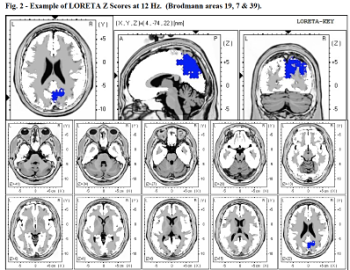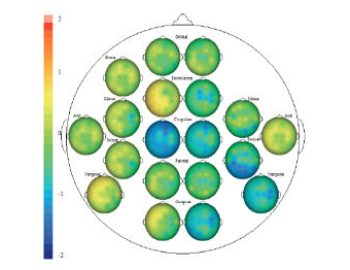ADHD / ADD

What is ADHD (ADD)?
Attention Deficit Hyperactivity Disorder (ADHD) is a common neurodevelopmental condition that affects attention, impulse control, executive function, planning, organization, judgment, mood, and emotional reactivity, to name a few. Neuroscience, brain imaging and clinical research tell us a few important things about ADHD. ADHD is not a behavioral disorder, a mental illness, a learning disability, or a matter of personal discipline. Instead, ADHD is a brain developmental impairment. Individuals with Attention Deficit Hyperactivity Disorder (formerly known as ADD, Attention Deficit Disorder) will struggle with a range of regular activities, including:
– School performance and academic attainment. – Occupational performance and attendance. – Creating or maintaining social relationships. – Maintaining focus and concentration.
Symptoms of ADHD
- Inability to sit still
- Constantly fidgeting
- Unable to concentrate
- Excessive talking and physical movement
- Constant forgetfulness, missing deadlines
- Losing or misplacing items
- Inability or difficulty focusing in meetings, class lectures, or talking with friends
Start your mental health journey!
Types of ADHD
Someone with Combined Attention Deficit Hyperactivity Disorder may have difficulty focusing, trouble organizing tasks by priority, and have difficulty waiting for their turn. They may also portray symptoms of hyperactivity, which may cause them to be consistently restless, fidgety, and unable to sit still.
Symptoms of Combined ADHD:
- Anxiety
- Chronic lateness
- Difficulty working on and completing tasks
- Disorganized
- Easily Distracted
- Impulsive Behavior
- Noisy and Loud
- Poor attention to detail
- Poor organizational skills
- Poor self-esteem
- Procrastination
- Restlessness
- Short temper
Inattentive Attention Deficit Hyperactivity Disorder, formerly known as ADD, as per its name, is characterized by the inability to focus and pay attention. Someone with Inattentive Attention Deficit Hyperactivity Disorder will not experience the same hyperactive and impulsive tendencies commonly found in the other two subtypes. Since children with this subtype don’t possess the hyperactive and always-on predispositions, it’s more difficult to discover Inattentive ADHD early on.
Symptoms of Inattentive ADHD (ADD):
- Anxiety
- Constant misplacing of items
- Constantly tired
- Daydreaming
- Difficulty Focusing
- Difficulty Listening
- Disorganized
- Easily Distracted
- Frequently forgetful
- Poor attention to detail
- Procrastination
The Hyperactive and Impulsive Attention Deficit Hyperactivity Disorder subtype is characterized by someone who is always moving around in their seat – unable to sit still, a chatterbox, acting impulsively, and may not always pay full attention to the discussion at hand. Children in this category of Attention Deficit Hyperactivity Disorder are described as ‘being run by a motor engine’.
Symptoms of Hyperactive & Impulsive ADHD :
- Fidgeting
- Restlessness
- Unable to play quietly
- Getting up unexpectedly or inappropriately
- Running or climbing inappropriately
- Always “on the go” or characterized as having a motor
- Excessive talking and interrupting or intruding conversations
How we can help?
Complementing some of the traditional treatments for ADHD, at Elumind we offer further evidence-based and effective treatments to manage Attention Deficit Hyperactivity Disorder symptoms, such as Neurofeedback, Life Coaching, and Cognitive Behavioral Therapy. Neurofeedback helps treat Attention Deficit Hyperactivity Disorder by increasing and balancing the ratio of high-frequency brain waves that lead to greater attention and self-control. Many ADHD brains create too many of the lower-frequency brainwaves, known as delta and theta, and thus they have a shortage of higher-frequency brainwaves, like beta. Over the course of your treatment protocol, neurofeedback works to reverse that ratio and reduce the symptoms of Attention Deficit Hyperactivity Disorder. Through QEEG brain mapping, we can see that a person with ADHD tends to generate an abundance of slower Theta brainwaves in their frontal cortex. It’s also been discovered that people with Attention Deficit Hyperactivity Disorder have different neural pathways in areas of the brain involved in attention, motor activity, impulsive behavior, and inhibition. Although some people aren’t diagnosed until adulthood, when we go back through a therapeutic assessment, we find that Attention Deficit Hyperactivity Disorder symptoms were actually present in their childhood. Also, if a child is diagnosed with Attention Deficit Hyperactivity Disorder, there’s a high probability that a parent or a sibling will have Attention Deficit Hyperactivity Disorder too.

Neurofeedback
Discover how neurofeedback training can improve your cognitive function and optimize your brain.

Life Coaching
Learn how our coaches can work with you to help you navigate your way through life’s obstacles and achieve the goals that are valuable to you.

QEEG Brain Mapping
QEEG is a quick and efficient tool that allows us to gather data and diagnostic information on your brain and identify both strengths and deficiencies in your brain networks.



